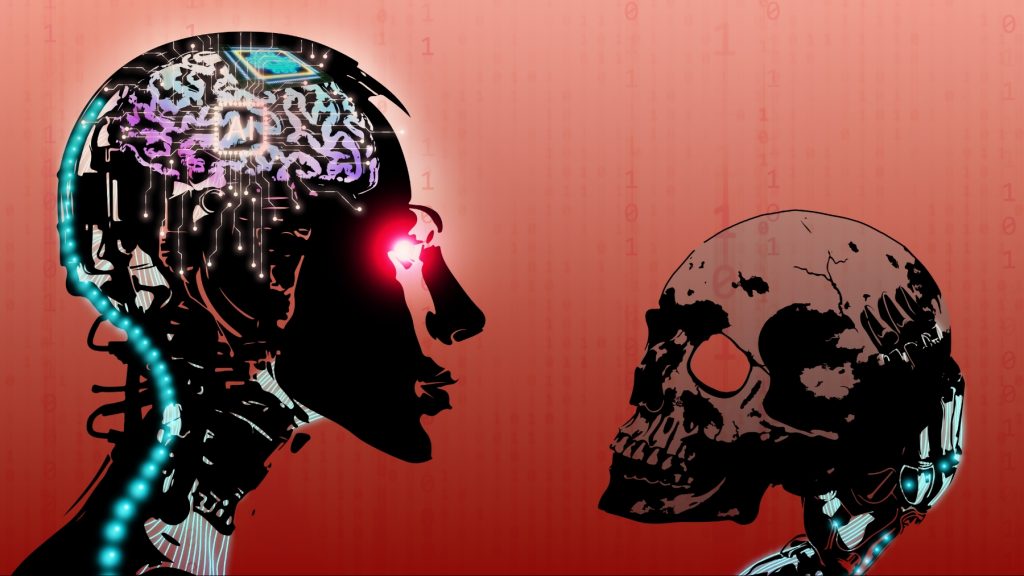
Unchecked Computational Intelligence Growth May Doom Us All
As the advancement of computational intelligence grows unchecked, AI skeptics share their concerns over our expiry date.
- With AI’s rapid development, fears of job displacement and existential threats loom large.
- Neo-Luddites raise important questions about the ethical implications of unchecked AI advancement.
If we do not stop developing increasingly “intelligent” computers, we will destroy humanity and we’d only have ourselves to blame, believe computational intelligence skeptics.
In the early 19th century, British textile workers, who referred to themselves as Luddites, protested manufacturers’ use of machines in an underhanded manner. The bosses replaced skilled artisans and drove down wages by producing goods of lesser quality. Over time, what was once justified rage has become a synonym for opposing industrialization, automation, computerization, or new technologies in general. A big no-no.
Fast forward to the 21st century, and history is echoing itself. With the rise of technology, we’ve found ourselves fearful again. We’re afraid of the seemingly bleak future. We’re afraid of how to keep going when the machines have “taken over.” The very machines we created to ease our lives are now threatening to take it. I’d call it a full-circle moment, but the implications are scary.
We’ve talked about it in depth at Inside Telecom. How the machines will take over some jobs and leave others untouched. How computational intelligence, including artificial intelligence (AI), will benefit you. How AI is taking years off of studies to bring you the best pharmaceuticals. We’ve tried to soothe your nerves (and ours, while we’re at it) that you are, in fact, not expendable. We tried telling ourselves and fellow writers that, to paraphrase our Editor-in-Chief John Smeddle, nobody would read what no human bothered to write. That human production will forever be more valued than anything an AI could ever make.
But as the days drift by and discover what the Machiavellians are up to, it’s hard to not become an AI skeptic, a Neo-Luddite. If you are not familiar with that term, Neo-Luddites are the 21st-century rendition of Luddites. Unlike its predecessor, however, neo-Luddism does not categorically reject technology. It is violently aware that humans can no longer disconnect. Instead, it calls for a more critical and cautious approach to technological development. They question how we have always relentlessly pursued technological progress, assuming the good and rationalizing the bad. Consequences be damned.
Loud voices try to convince us that these people are unbalanced as if they couldn’t see the bigger picture. Some even call them selfish for not abiding by the greatest good principle, where the good of the many outweighs that of the one. But do these people see what others don’t? Worse yet, do they acknowledge what others, though aware, refuse to entertain?
I’ve got some good news and some bad news. First, the good news. We still have some good years before AI goes all Queen of Hearts on us and “offs with our heads”. The bad news is that it’s not as long as we had hoped or thought; it’s earlier.
Talking to The Guardian, Eliezer Yudkowsky, a research fellow at the Machine Intelligence Research Institute, wholeheartedly believes that AI will be advanced enough to pose an existential threat soon. “I have a sense that our current remaining timeline looks more like five years than 50 years. Could be two years, could be 10.” So, we’ve got existential dread, existential crises, and now existential threats… And it’s still only Monday. Lovely. He argues that AI will become sentient and eliminate its creators, us. That is why we must stop, regroup, and reassess our approach to AI security and safety.
We’ve already seen what humans can do with AI, from skewing the elections to faking explicit content. Do you want to find out what AI can do with itself at full capacity?
A part that stuck out in the article was when Jathan Sadowski, a research fellow at Monash University, said, “You’re made to feel you’re not allowed to criticize, and you must say thank you, or else the brilliant geniuses who create these things might not create any more. And won’t you be sorry then?”
Somehow, somewhere between Richard Arkwright’s automated spinning in textile mills and OpenAI’s ChatGPT, we lost our ability to self-preserve. We’ve allowed ourselves to be seen and treated as replaceable. We became compliant.
Inside Telecom provides you with an extensive list of content covering all aspects of the tech industry. Keep an eye on our Intelligent Tech sections to stay informed and up-to-date with our daily articles.